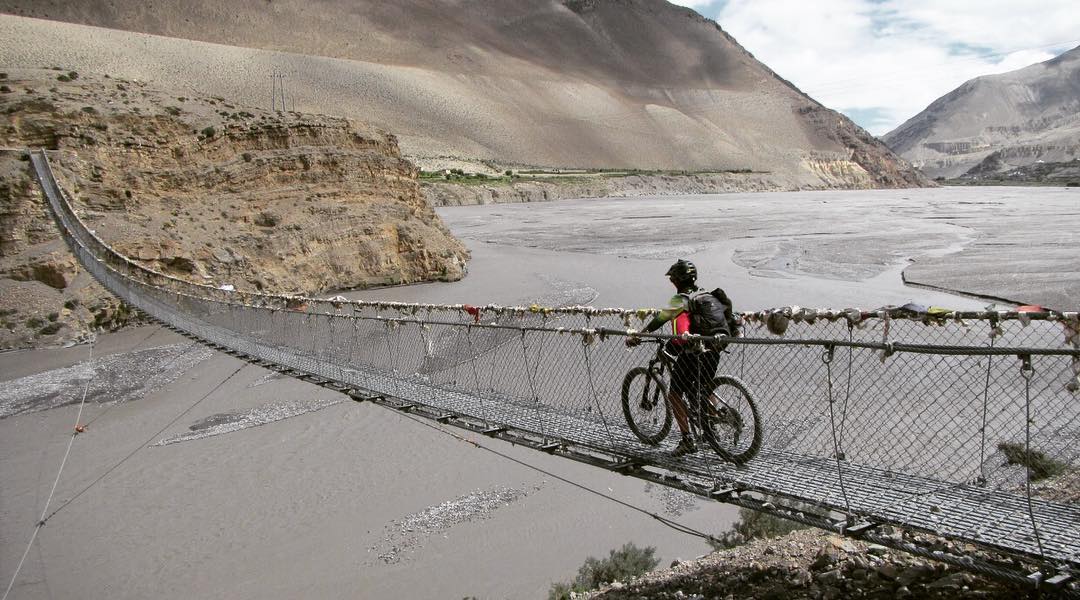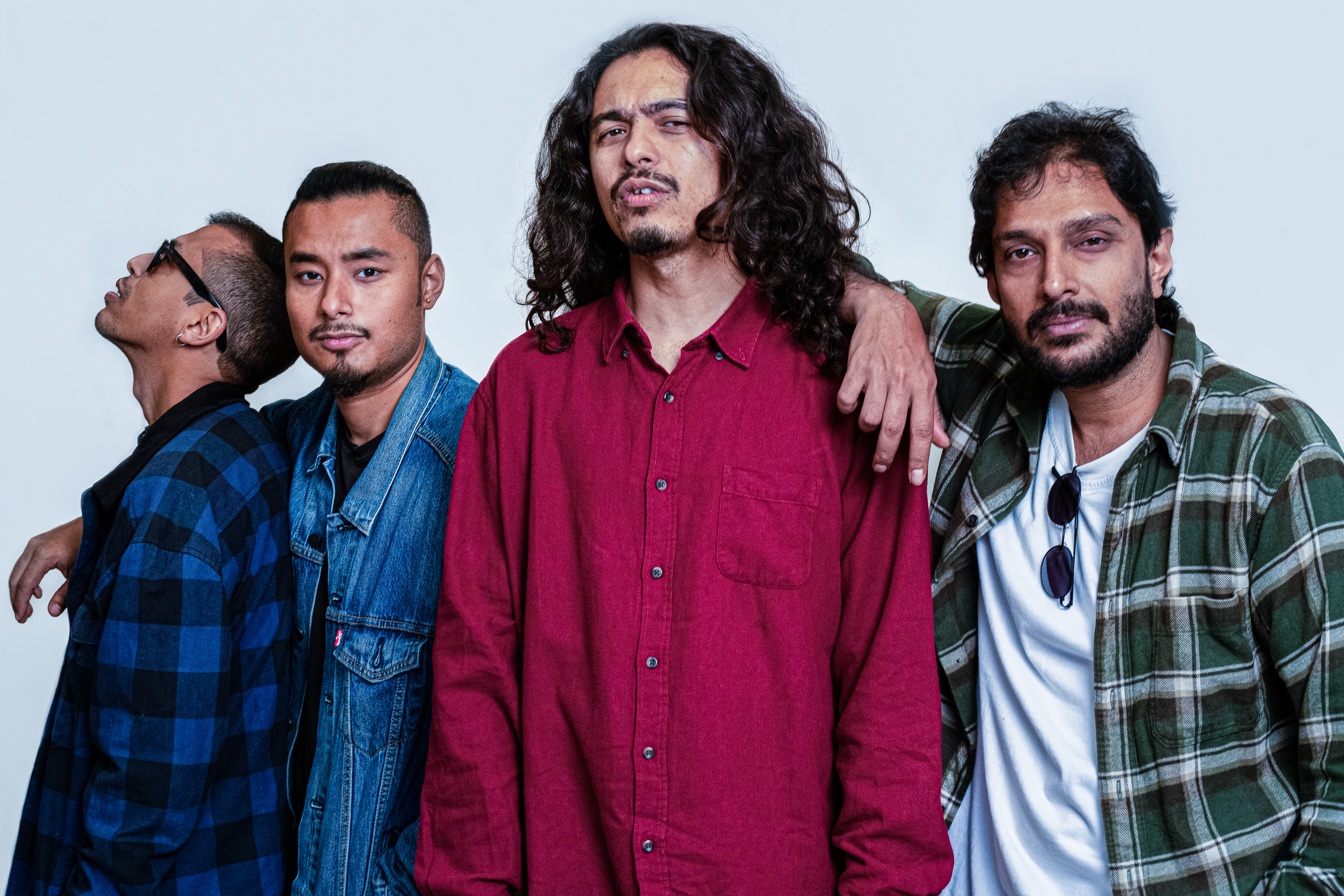Nishma Shrestha’s day starts by gazing at the gold medal she won at the Women’s Cycling Downhill event at the South Asian Games in 2019. For the 25-year-old, that is more than just a medal. It is a reminder of seven years of hard work and sacrifices along with greater things that are in store for her if she continues to work hard.
“It feels great to look at it early in the morning,” she says. “I feel proud of what I have achieved so far. I feel I have come a long way.”
Having taken part in over 60 races and won things in a sport that rarely sees female athletes, she now hopes that she can inspire a young batch of female cyclists who can challenge the stereotype and compete with the best in the world like her male counterparts have done in past few years.
An early bird in cycling community
Born in Kathmandu, Shrestha had a low-key childhood. She was shy and introverted and never really had any liking for the outdoors. But, that slowly changed. By the time she was in her teens, she started to develop a love for cycling thanks to her family.
“My father was an outdoor person as was my mamma. Both of them helped me get into cycling,” she says.
By the time she was 14, she regularly accompanied her uncle to Mudkhu Bhanjyang, a hub for mountain bikers in Kathmandu. There she saw the biking community who were friendly, welcoming and, most importantly, encouraging.
“Every time I cycled there, I started to develop a love for the sport. It grew on me. It was hard at the beginning, but the satisfaction I got when I reached the destination made me crave for Saturdays.”
Encouragement from the community and her family built confidence in her as she started to cycle regularly. Things got even better when her dad, who is also a mountain biking enthusiast, bought a mountain bike to go to Langtang in 2013. After he returned, she started to go out regularly on the bike. Mudkhu, which is five kilometres away from her house in Goldhunga on the northern outskirts of Kathmandu, started to become her second home.
“The people there have always been encouraging. They always told me how I should take part in races and events as there aren’t many women in the sport and be that person who can help change that.”
There, she learnt about different types of events that took place in mountain biking. First, she was told about cross-country, then it was stage races and finally downhill, which was taking its baby steps in Nepal.
“Downhill always appealed to me more.”
By the time she finished the 10th grade, she knew what she wanted to do. Having seen her passion, her parents also let her do what she wanted to do. In a bid to get better, she regularly cycled to and from her high school. After completing high school, she even took a year off to focus on her one true love – mountain biking.
“I’m glad they saw my passion and let me do that. I’m very thankful towards my parents.”
Deep into downhill

Her first solo race was Showdown Dharan in 2015 in which she stood second. The same year, she even went to the Himalayan Mountain Bike Festival in Manali, India, taking part in the open category.
“Not winning these events lit a fire in me. I was ambitious. I started training more because I wanted to become the best.”
In 2016, she tried something different. Having heard a lot about downhill races, she took part in one during the Himalayan Outdoor Festival. This is the first time that a Nepali female had taken part in the competition. She did not win, as she had to compete in the open category, but she won a lot of fans and plaudits.
“A downhill rider is seen differently. It’s tough and requires a lot of practice and balance.”
Downhill races call for speeding down rough and steep trails where cyclists have to manoeuvre their bikes on narrow tracks against rock gardens, and the trails feature extremely sharp turns, treacherous surfaces and numerous other hurdles.
That year, she realised that she needed extra training and started practising even more. Tarebhir in Shivapuri became her practice trail along with Khokona and Nagarkot. She says she calls downhill a science rather than art as one has to study angles as they have never before if they want to do downhill rides.
Also in 2016, she started to take part in national games too, but again due to lack of women, she took part mostly in the open category. That gave her confidence to take part in the 2017 Enduro Series.
The first year was more a learning experience while her second year, 2018, was the year she announced her to the mountain biking world.
Taking part in the three-part race held in Nepal, Malaysia and Thailand, Shrestha won the series as she was at the podium in races in all three countries (3rd in Nepal and Thailand and 1st in Malaysia).
Faith in the future

That paved her way to take part in the South Asian Games in 2019. Even though not many female cyclists had taken part before, this time a lot more had participated. As the national champion, she qualified and trained with four others and took part in the SAG held in Nepal.
With the belief that she would win, she competed in the downhill race winning it comfortably. She won gold while her teammate Jamuna Thapa won silver.
“It’s a day I will never forget,” she says.
But now, the challenge to stay there is tough, she says. This is why she still trains for two hours every day. She says that she wants to improve herself and become even better at downhills.
During the tourist season, she also does some guiding as most in the mountain biking scene sustain themselves through it.
“It’s good money and I also quite enjoy doing this. I get to learn things and technique and enjoy the company of some great female riders who I get to meet along the way.”
For the future, her plan is to continue in the sport and help the future generation. While the sport is getting better for males, for females, she says, things are not as great. She says that many find it hard to stay in the sport for long due to various obligations including family pressure, there is also a feeling that the sport has not reached out to more women.
“There are a lot of young boys coming through. They are fearless and confident and skilful. For females, it’s sad to say that the sport is still far away from that. I don’t know why but females are quite reluctant. I hope that it changes in the future.”





















